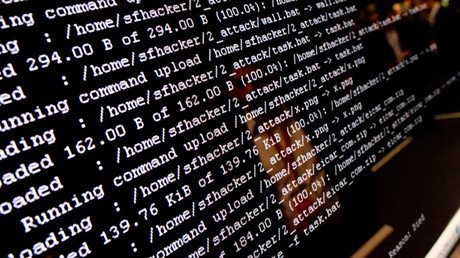Federal law enforcement agencies sued for keeping Americans in the dark about hacking activities
The American Civil Liberties Union, along with several non-profits, has sued seven US federal agencies over their failure to disclose information regarding government hacking activities that target the American public.
The Freedom of Information Act (FOIA) lawsuit filed last Friday in New York calls on the FBI, Immigration and Customs Enforcement, the Drug Enforcement Administration, and four other agencies to disclose which hacking tools and methods they use, how often they use them, and the legal basis for employing such methods.
The Freedom of Information Act (FOIA) lawsuit filed last Friday in New York calls on the FBI, Immigration and Customs Enforcement, the Drug Enforcement Administration, and four other agencies to disclose which hacking tools and methods they use, how often they use them, and the legal basis for employing such methods.
The lawsuit also seeks any internal audits or investigations related to American citizens being subjected to government hacking programs. The ACLU brought the suit after its FOIA requests regarding government hacking went unanswered.
“Because of the privacy and security implications of hacking as well as its potential for misuse, the public has a strong interest in learning about how law enforcement is deploying and regulating hacking,” the lawsuit reads. It stresses that the public remains “in the dark” about the extent to which law enforcement agencies use their surveillance techniques. Moreover, the procedures regulating the government’s use of hacking methods remain “largely secret,” it’s claimed.
In a press release outlining its legal action, the ACLU noted some of the “troubling” examples of US agencies targeting Americans with hacking methods.
In one case, the government hijacked an internet hosting service, likely spreading malware to countless innocent people who visited websites on the commandeered server. In another high-profile case, an FBI agent is said to have impersonated an Associated Press reporter in order to deploy malware on a suspect’s computer.
The ACLU claims the suit will help shed light on how common these cases are and to what extent they pose a threat to privacy.
Without an understanding of what the government is doing – and what rules it follows – it is impossible for the public to meaningfully determine whether and when the government should engage in hacking.
It is also impossible to understand whether the US government is “collecting excessive information about the people it surveils,” and how investigators deal with “innocent bystanders’ information.”
The issue of privacy remains a point of major concern in the US since the infamous NSA worldwide snooping case was exposed by its former employee Edward Snowden.
Also on rt.com UK mass surveillance broke human rights convention, European court rulesWashington’s allies have also been ensnarled in domestic surveillance scandals. In September, the European Court of Human Rights declared that London’s mass surveillance program violated human rights.
Like this story? Share it with a friend!













